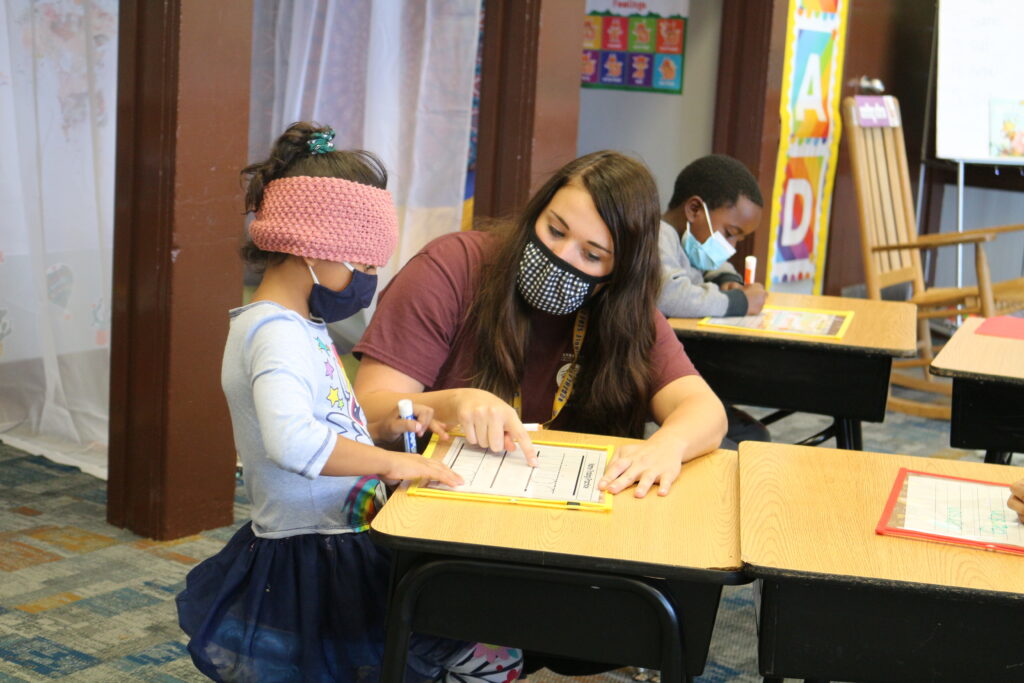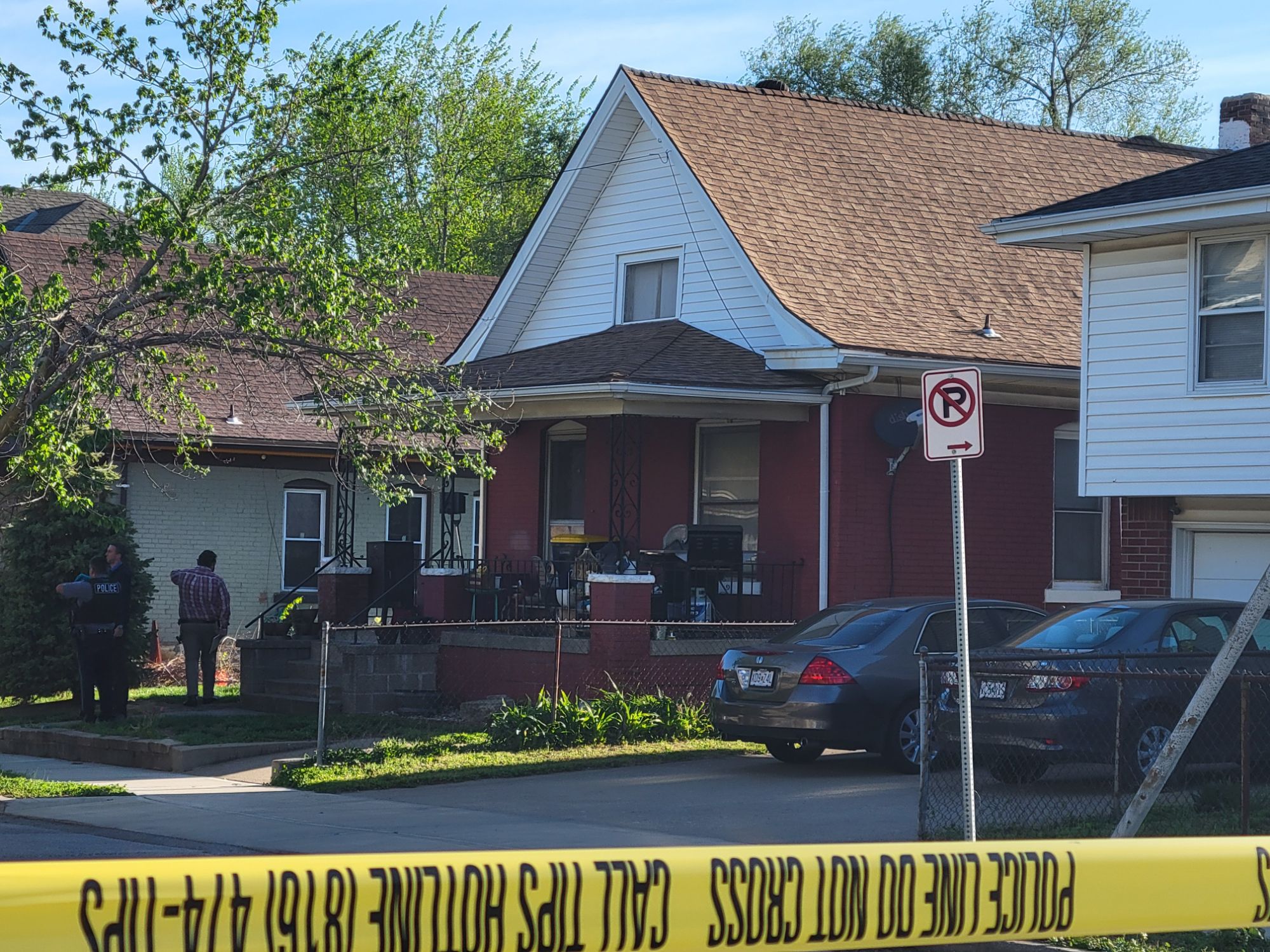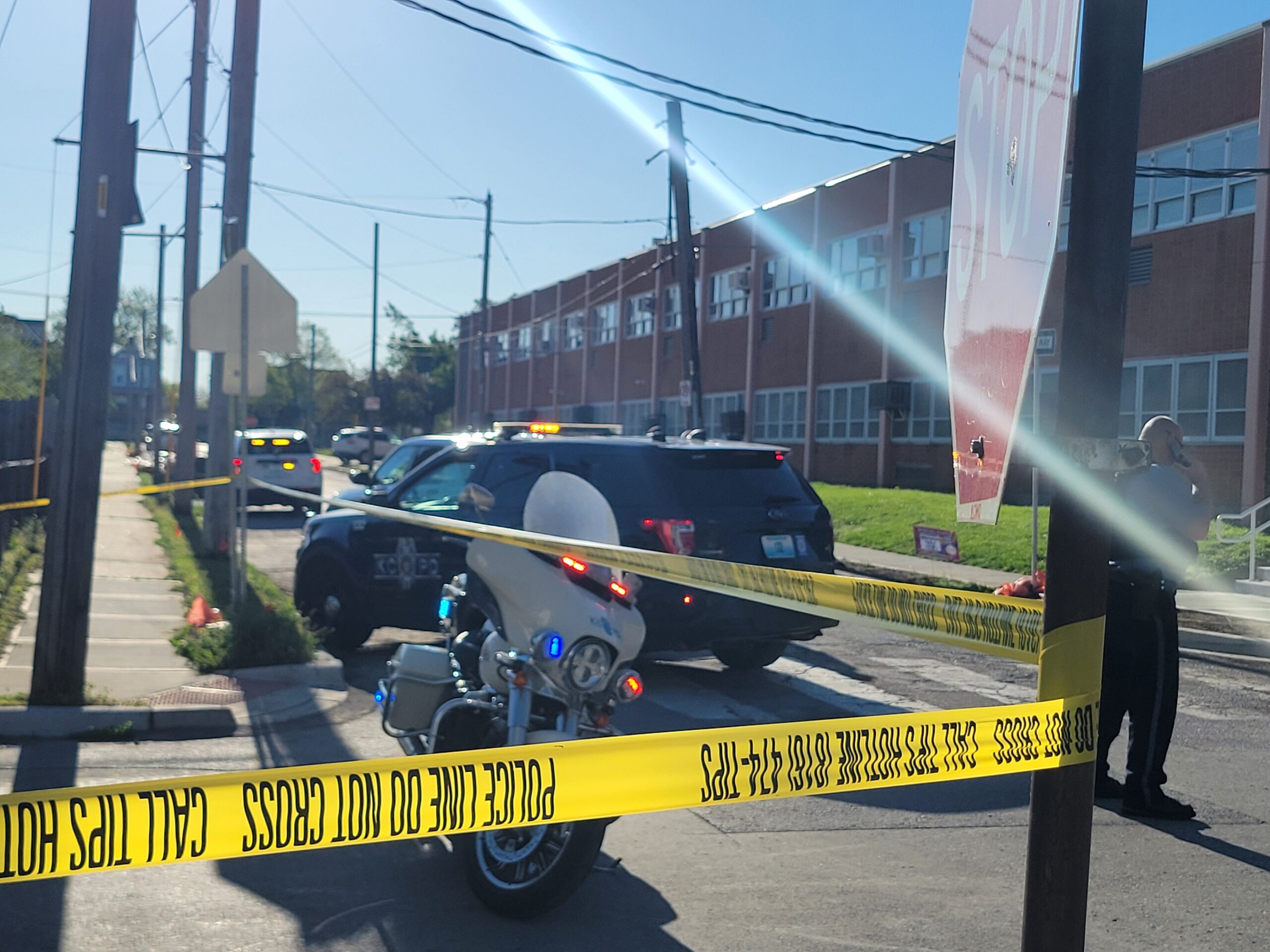
By Abby Hoover
White House Coordinator for Operation Allies Welcome Jack Markell joined local agencies and school leaders to discuss Afghan resettlement efforts on Thursday, Dec. 2.
Markell visited with community stakeholders, newly-arrived and resettled Afghan families, service providers and community leaders throughout the day in Historic Northeast Kansas City, ending the day at Kansas City Public School District’s (KCPS) International Welcome Center at 711 Woodland Ave.
President Joe Biden appointed former Delaware Governor Jack Markell as White House Coordinator for Operation Allies Welcome in September. In partnership with DHS and other federal agencies, Coordinator Markell has been working to marshal a whole-of-America response to resettlement and to ensure the White House is a strong partner to state and local officials, private sector companies, veterans and faith organizations, resettlement agencies, educational institutions, and other organizations on the front lines of this historic welcome effort.
Key partners and agencies providing resources to refugees locally and state-wide were represented, including Missouri’s State Refugee Coordinator Paul Costigan, Executive Director of Jewish Vocational Service Hilary Cohen-Singer, Executive Director of Della Lamb Community Services Ryan Hudnall and KCPS Superintendent Mark Bedell.
“I think Governor Markell and his team from the White House are visiting Kansas City to understand how the Operation Allies Welcome is going and to get a fuller picture on refugee resettlement,” Hudnall said. “They’re visiting a number of different cities to get insights into some of the best practices and also some of the challenges that the local resettlement agencies are facing.”
As Afghan evacuees relocate across the U.S., local resettlement agencies are providing support at an unprecedented rate. Kansas City resettlement agencies are expecting to resettle about 625 Afghans through January and have already welcomed more than 325 to the area.
“It’s very dynamic, we get information seemingly every day, whether it’s notification of arrivals or different resources that are available to us,” Hudnall said. “Certainly the needs of families, that is something that weighs heavy on us. How do we respond to the needs of individual families as we’re receiving so many new ones? That is something we’re actively working through and making sure that we are client centric in responding to their needs.”
Those most urgent needs are housing, education – especially teaching English – and employment.
“As we’re receiving so many, our teams are starting to work through and process, ‘How do we best respond to where they’re at and how do we equip and engage the different community resources to support them as they make their longer journey into Kansas City?’”
Della Lamb and Jewish Vocational Services (JVS) brought other stakeholders to the table for these conversations who are engaged not only in initial arrival, but the long-term community integration effort.
“One of the things that it highlights is all of the incredible resources there are here in the Northeast that go to support refugees and immigrants,” Cohen-Singer said. “We’re here at the International Welcome Center that is new, but I think will become a really critical fixture in supporting refugee and immigrant kids and families as they make their way in Kansas City.”
The International Welcome Center opened at the beginning of the school year, providing a half-day intensive English as a Second Language (ESL) program to elementary students, including recently resettled refugees.
“We’re working hard with our community partners to communicate who’s coming when, like JVS comes every other Tuesday to bring new families, we do an education orientation,” said Allyson Hile, Director of Language Services and Cultural Equity for KCPS. “We’ve seen an increase in the number of kids we’re serving here, just kind of expecting more, and every week we’re just prepping: ‘Who’s coming in? What do we know?’ and of course taking families that moved to Kansas City without a refugee resettlement agency behind them.”
For the first time, all ESL and refugee services through KCPS are centralized in one place at the International Welcome Center in Historic Northeast.
“It’s been great to help us have a truly one stop shop for community partners and for families,” Hile said. “I think families, when they come in and enroll, getting to see the kind of program that their child might be going to, meet those teachers right away, it’s just been amazing.”
Just last week, the center began an adult ESL class for parents where they also provide information on resources.
“Despite the chaos and speed with which everything happened, it’s just very hopeful,” Hile said. “We’re here to help you every step of the way… This is a welcome mat for you, and you’re at the start of your journey here, and that’s what we want this place to be.”
International Welcome Center Administrator Ryan Rumpf said they’ve been preparing for Afghan refugees, and the first four students started last Thursday.
“The families are coming over here with a lot of anxiety, trauma, things like that, and this place gives them that soft landing that they really need,” Rumpf said.
The International Welcome Center is up to 81 students, and although it’s bittersweet, Rumpf said they expect some to transition back into traditional school full-time at semester. While the center has doubled enrollment in just four months, Rumpf said they’re well prepared for more students. The center makes sure students not only grasp the English language before transitioning out, but track whether students are engaging with their peers.
“We won’t let them exit until they’re interacting with their peers and they’re following the teacher’s directions and at least giving the assignments a try,” Rumpf said. “It’s the best job in the world, it’s really cool. There’s just not many of these schools across the country. The fact that Kansas City has one is something to be proud of.”
Last year, JVS resettled 109 people and in 2019, they resettled 88. Just in the last eight weeks, they’ve resettled 189 individuals from Afghanistan, plus an additional 35 that have come through the traditional refugee path.
“We’re moving super fast and I think have lots of opportunity for people to join with us and provide material support,” Cohen-Singer said. “That’s a lot of houses to set up, it’s a lot of doctor’s appointments to take people to, it’s a lot of trips to the DMV to get their state IDs. There’s just a lot of people power that is needed to help make all these core services work.”
The agencies need support from the community in terms of volunteer time and resources to help get people on their feet. Della Lamb recently hosted one of its workshops for volunteers looking to help resettled families.
“The governor was surprised at how unified all the different resettlement agencies are in their approach of engaging a new model of resettlement called Community Sponsorship, which actively invites the community into the resettlement process,” Hudnall said. “The community is both the greatest asset and the greatest opportunity for resettlement… It creates a lot of health, both in the initial arrival as well as in the long term community integration because we provide that wrap-around support, friendship, and access to other services that might not otherwise be available if the resettlement agencies are left in isolation.”
They also visited the North-East Branch of the Kansas City Public Library, which provides many resources and has programs dedicated to supporting refugees and immigrants in a variety of languages.
“In a way, it’s an opportunity for those community institutions to really shine and share with the governor the best practices that we have created here as a community to support those that are coming into our city,” Cohen-Singer said.
On August 29, 2021, President Biden directed the Department of Homeland Security (DHS) to lead and coordinate ongoing efforts across the federal government to support vulnerable Afghans, including those who worked alongside us in Afghanistan for the past two decades, as they safely resettle in the United States.
Since then, Operation Allies Welcome has resettled more than 25,000 Afghan evacuees, working with more than 200 local resettlement affiliates across the United States.


















